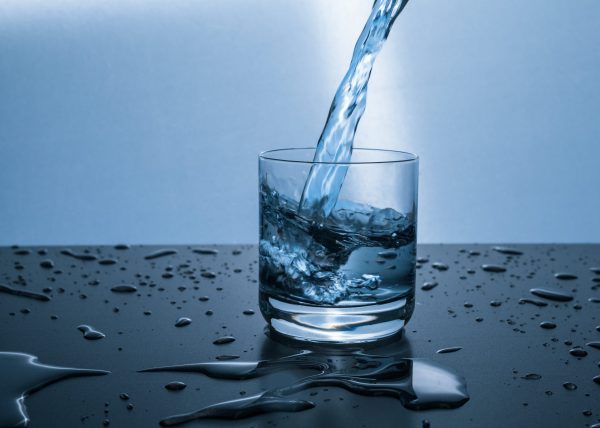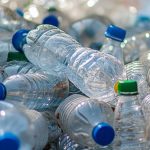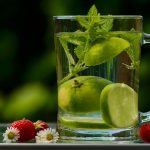To be honest, the safest water on the planet is probably found high in the Himalayan mountains — where glaciers are slowly melting away.
This water is crisp, clean, and untainted by any human chemicals.
But any natural water source that flows downhill will pick up toxins along the way.
Now, Americans have the choice of either drinking publicly supplied water or paying high prices for bottled water.
And if you’re like most folks, you don’t drink straight from the tap because you know this water has been fluoridated, chlorinated and treated with all sorts of chemicals.
And who knows what else is really in it?
These are all valid concerns. And I’m in 100% agreement.
When it comes to water, fluoride is one of my biggest issues. This toxic chemical has nothing to do with the safety of your water supply. Rather, the original goal behind fluoridation was to stop tooth decay… healthy teeth for everyone!
I remember awhile back when I had a young, strapping patient come in…six foot three, Dutch Norwegian guy…basically give him an ax and he’s a Viking.
When I examined his mouth, he had these great teeth, but they were marred by big white splotches from the fluoride in his drinking water. That was such a shame.
You see, as it turns out, fluoride doesn’t actually do anything to improve your dental health. Instead, it often causes something called “dental fluorosis”. This is a condition that results in white streaks on your teeth that can turn into brown stains, pits and broken enamel.
Even worse, fluoride is toxic to your health.
It’s directly linked to under-active thyroid – known as hypothyroidism. It contributes to the development of Alzheimer’s disease. And drinking excess levels of fluoridated water can also decrease bone mass and add to joint pain and stiffness.
In animal studies, it has even been shown to cause DNA damage and alter gene expression.
The news for chlorine isn’t any better. Like fluoride, it’s associated with thyroid problems. Higher than normal levels of it are found in elderly dementia patients. Drinking chlorinated water may also contribute to the development of certain cancers.
The health dangers associated with these two chemicals alone are enough to make anyone steer clear of tap water. And this doesn’t even include all the environmental pollutants – like pesticides, lead and other contaminants – that find their way into your public water supply.
With this in mind, it’s understandable that bottled water has become a household staple. But is it any better for you than drinking water from your faucets?
The Truth about Bottled Water
Here’s something that may surprise you. The FDA water quality standards for bottled water are basically the same standards used by the EPA for tap water.
In other words, there is no guarantee that investing in bottled water is any better for your health than drinking out of your own tap.
This is true even if you choose bottled water that sounds exceptionally pure. The use of terms like “spring water, glacier water and mountain water” isn’t regulated. More importantly, there’s no assurance that water bearing these labels are from pristine sources.
And let’s not forget the fact that much of the bottled water that’s sold here in the U.S. comes from municipal water sources.
This means you could be spending hundreds of dollars a year on water that isn’t much different than the water that comes out of your own tap.
However, there is a way to get fresh, delicious, uncontaminated water without spending a fortune for it.
The Safest Water on Earth
I always keep a big pitcher of water in my fridge. It’s free of chlorine, fluoride, bacteria, heavy metals and other contaminants.
What’s my secret?
I have a water distiller. It’s one of the best investments I’ve ever made.
This machine – which looks a little bit like a large coffee maker – removes about 99% of chlorine, fluoride, bacteria, pesticides, lead and other chemicals from my tap water. And for a one-time investment, I have all the pure and natural water I could ever want.
When I’m thirsty, all I have to do is pour it into a glass. If I’m running out the door, I simply put it in my handy 16 ounce “go-cup.”
I also use it to make tea and whenever I need water for cooking purposes.
Now, you might have heard that distilled water is devoid of minerals. But you only get a small portion of your daily mineral intake from water. So this isn’t a big concern for me. I’d much rather have a safe and non-toxic source of life-giving water.
However, if this worries you, I have a quick and easy solution.
Just purchase a bottle of liquid minerals made especially for re-mineralizing distilled water at any health food and supplement store, or online; a teaspoonful or two and you have an expensive mineral water for a few pennies.
The last bottle of mineral drops I purchased has enough to last me for an entire year.
So don’t waste another dime on bottled water that may not be any better than the water that comes out of your faucets. Your health is more important than that, and a distiller can give you years of contaminant-free water for years to come.
SOURCES:
Peckham S, et al. Are fluoride levels in drinking water associated with hypothyroidism prevalence in England? A large observational study of GP practice data and fluoride levels in drinking water. J Epidemiol Community Health. 2015 Jul;69(7):619-24.
Mahlberg R, et al. Pineal calcification in Alzheimer’s disease: an in vivo study using computed tomography. Neurobiol Aging. 2008 Feb;29(2):203-9.
Luke J. Fluoride deposition in the aged human pineal gland. Caries Res. 2001 Mar-Apr;35(2):125-8.
H Ling-Fei et al. DNA damage, apoptosis and cell cycle changes induced by fluoride in rat oral mucosal cells and hepatocytes. World J Gastroenterol. 2006 Feb 21; 12(7): 1144–1148.
Everett ET. Fluoride’s Effects on the Formation of Teeth and Bones, and the Influence of Genetics. J Dent Res. 2011 May; 90(5): 552–560.
Siritapetawee J, et al. Trace element analysis of hairs in patients with dementia. J Synchrotron Radiat. 2010 Mar;17(2):268-72.
Villanueva CM, et al. Meta-analysis of studies on individual consumption of chlorinated drinking water and bladder cancer. J Epidemiol Community Health. 2003 Mar;57(3):166-73.






